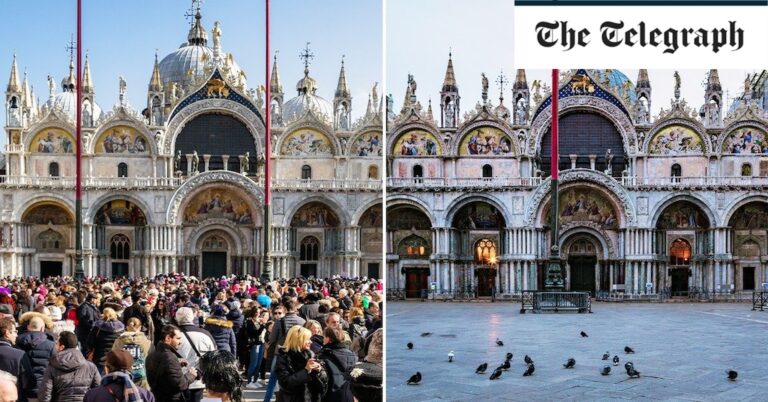Tourism is the lifeblood of Greece’s economy, accounting for about one-fifth of its GDP. Around 800,000 people out of a population of 10.3 million work in the sector, which is expected to generate £34 billion in revenue this year, close to its pre-pandemic peak.
The main problem with overtourism on some islands is environmental. Santorini has 15,000 inhabitants, but it can be visited by up to 2 million tourists a year. 90% of GDP comes from travel trade. George Sarelakos, founder and chairman of environmental charity Aegean Libres, said high tourist numbers “lead to extremely polluted harbors and reefs on popular islands, while on islands with limited numbers of tourists. “There are some areas where there is less pollution.”
“Greece has developed an unsustainable model that promotes land and ocean degradation, overbuilding, coastal erosion, uncontrolled boat anchorage, large cruise ships anchored on small islands, and overconsumption of single-use plastics.”
After the Arab Spring, while tourism dried up in Lebanon, Tunisia, Syria, Libya and, at one point, Morocco and Turkey, visitors to Greece soared. Without infrastructure improvements, tourists jumped from 10 million in 2010 to more than 30 million in 2019.
Dr Nikolaos Papas, professor of tourism development and crisis management at the University of Sunderland, says part of the hostility towards tourists is a response to the immigration crisis. “What we have actually witnessed in the European countries of the Mediterranean since 2010 is a dramatic increase in nationalism and the far right in relation to the migration and refugee crisis, and in terms of the behavior of locals towards tourists. It also has an impact on
Without tourism, many Greek islanders would migrate to the mainland for work. But Greece’s unemployment rate is 10.9%, so only a small number of people can find stable work. Many people will try to go abroad, as has happened in the past.
With the exception of Athens and one or two other cities, almost the entire Greek airport network, roads, hotels, and retail infrastructure is aimed at serving tourists. These hotels could become nursing homes or inexpensive micro-apartments. But, as Font says, “If infrastructure cannot be repurposed for other economic purposes, the Greek economy will collapse, with ripple effects on all other aspects of the economy.”

